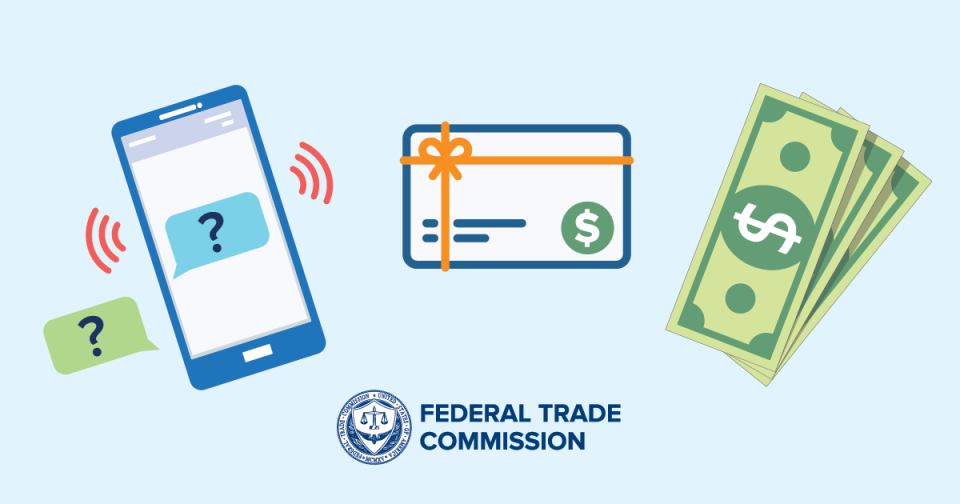
Scammers pretending to be from the government tell convincing stories to steal your money or personal information. But now they’re taking a new, layered approach — and here are some clues to spot it.
The scammers first say they’re with a company and contact you about a routine problem, like suspicious charges on your Amazon account, a virus on your computer, or an account breach.
The story quickly escalates: They lie and say your name is involved in serious crimes and claim the court is about to seize the money in your bank account or retirement savings. (Also a lie.)
Next, they switch from being the bearer of bad news to acting like the hero. How? By (supposedly) connecting you to someone with the government to “help” you fix the problem.
But the person they transfer you to doesn’t work for the government. And they don’t help. They want to trick you into taking cash out of your bank or retirement account and giving it to someone.
Here’s what to know about how scammers try to deceive you:
- Scammers try to convince you they’re with the government to gain your trust by faking the caller ID to make it look like a government agency is calling.
- Scammers give you an employee ID or badge number or use the name of a real government employee.
- Scammers send official-looking letters with seals and make up government agency names that sound real but aren’t.
Someone who works for the government won’t tell you to get cash or gold and give it to someone. They won’t tell you to pay with a gift card, wire transfer, payment app, or cryptocurrency. They won’t tell you to keep your conversation a secret or to lie to anyone. They won’t tell you to transfer money from your accounts to “protect” it or for any reason. Only scammers do those things.
Check out How To Avoid Imposter Scams for more advice. And to report an imposter scam to the FTC, go to ReportFraud.ftc.gov.

Very nice ☺️
They almost got me but thank GOD, HE intercepted their entire plan of wicked deceit.
In reply to They almost got me but thank… by Tangie
Amen to that
Thank you very much for this information. It’s just a few days late, but I was aware enough to drop the call and send do a block delete of the number. My gosh, this is ridiculous.
I am so glad for this Company! Your information is allowing me to be alert at all times with your personal information and money. Unfortunately, I would have appreciated contacting your company years ago! I had no idea concerning all this valuable information needed for everyone.
Thank you ! Keep up the good job informing us about these tricky scams and fraudulent people in this world.
Thank you for the updates.
Please give information on companies who charge late fees when it only takes 3 days to get to them, and you've paid by mail over a week prior.
I had that happen to me but the company that the scammers took over was the one that was supposed to be protecting me. Norton/LifeLock. I have really comprehensive protections in place with Norton - so scary.
In reply to I had that happen to me but… by Linda Kent
Norton security took 400$ out of my account twice in one year.
In reply to I had that happen to me but… by Linda Kent
Oh my goodness. I have never heard of scammers taking over Norton/LifeLock. That is VERY scary! I recently bought a years protection from Norton/LifeLock. I think it's their best package. This is extremely scary news!
Thank you for sharing this important information.
I wish I'd seen this before. I've never been a victim of scammers/thief's. I receive emails and texts daily and there have been some that almost had me convinced. Follow your instincts, trust yourself not the scammers.
Thanks for posting this. A PSA Awareness Ad would be a great way to inform so many. God Bless!
Thank you for this important advice on how to protect myself from scammers.
This is great information. The government imposter scam details exactly what happened to me. I am out $4500.00. Ironically, the person pretended to be from the FTC. I have already files a report with the FTC. I wish I was smarter and knew this information before, but this is my first time to go through this.
In reply to This is great information… by Mary Kritsonis
I just had a very recent incident with someone pretending to be with the FTC. Unfortunately, I am out $80,000. I would think that the FBI would get involved for that amount of money, especially since the person pretending to be with the FTC is impersonating a government official and using a letter with the FTC logo on it.
In reply to This is great information… by Mary Kritsonis
Oh Mary, I know how you feel. I was scammed out of a lot of money. It will take me a long time to forgive myself for being so gullible. I knew better, but they definitely were convincing. Having my computer "infected with a virus" caused the main concern. The situation escalated with exactly the new tactics they use now.
Thank you for all the information you send. It's not only Informative but interesting, and it has helped keep me safe many times.
What should I do if a scammer called pretending to be Medicare and already had my full name , birthday, and street address? Soon as I verified they hung up.
Good to know
+1 (786) 705-8717 Called me. As Medicare
One of the BEST ways to avoid phone scams is to NOT answer ANY call that is unfamiliar! If the call is important, the caller will leave a message. No one can steal your money if you don't answer the phone.